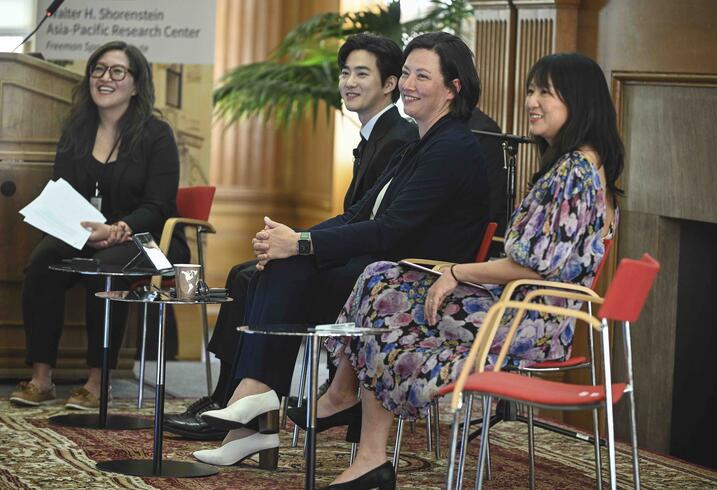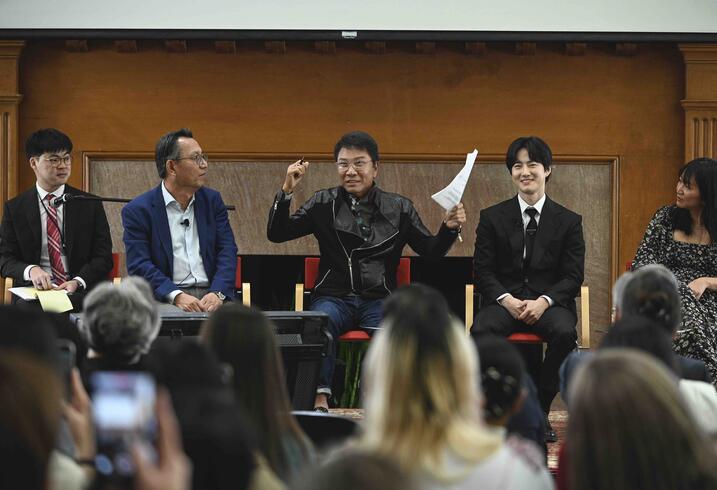This does not imply that South Korea must proclaim an “anti-China” policy stance. It is also unnecessary to needlessly provoke North Korea. Nonetheless, South Korea should clearly declare to the world its resolve to honor and defend universal values, including democracy, human rights, sovereignty, and core international norms. It will face difficult decisions in its relations with Beijing, especially due to economic considerations, and it will be impossible to treat North Korea just like any other country. As will be the case with every other democracy, South Korea will have to confront vexing challenges as it seeks to pursue its interests while upholding its values.
Since 1945, South Korea has been the largest beneficiary of the post-WWII liberal international order. It is time for South Korea to defend democratic norms and help uphold the rule-based international order. There is no free ride. As the tenth-largest economy in the world, South Korea’s economic heft alone entails certain responsibilities. If democracy is defeated by authoritarianism, there will be no future for South Korea. Intellectuals and policymakers in the United States are keeping a close eye on how South Korea responds to Russia’s invasion of Ukraine. They are hoping that Seoul will join hands with its fellow democracies in their arduous struggle against authoritarian powers.
The Lessons of Korea’s History
Watching Russia’s invasion of Ukraine brings to mind the painful and bitter history of Korea’s recent past, which was marked by the First Sino-Japanese War (1894–95), the Russo-Japanese War (1904–05), and the Korean War (1950–53). South Korea did not succumb to adversity, however. It overcame formidable obstacles to become the economic and cultural powerhouse that it is today. As a result of its failure to appropriately respond to trends in international politics in the late 19th century, Korea lost its sovereignty. Amidst the chaos of division in 1945, the foundations for South Korea’s remarkable development were laid when it aligned with the United States instead of the Soviet Union. In 1991, at the end of the Cold War, South Korea pursued peace on the Korean Peninsula through its “Northern Policy,” also known as Nordpolitik.[10] It is especially interesting to note that at key junctures in the history of the modern international order, conservative leaders (Syngman Rhee in 1945 and Roh Tae-Woo in the 1990s) played a decisive role in steering South Korea in the right direction.
Faced with the relentless march of imperialism across the world, Korea’s leaders and intellectuals in the late 19th century responded in one of three ways. The first group advocated for Western-oriented reform, calling for the adoption of Western institutions and practices to achieve modernization. Seo Jae-Pil and Syngman Rhee were prominent figures in this camp. Second, there were those who called for Asian solidarity. Under this view, Korea would join hands with China and Japan to resist Western imperialism. An Jung-Geun’s vision of “Peace in East Asia” is a famous example. Lastly, some responded with a focus on Korean nationalism. Sin Chae-Ho and Park Eun-Sik made significant contributions to this strain of thought.
In the end, Korea was unable to coalesce around a unifying vision for the country. The Joseon Dynasty failed to achieve modernizing reforms, and Korea became a colony of Japan. Seo Jae-Pil and Syngman Rhee left for the United States. Furious at Japan’s betrayal, An Jung-Geun assassinated Itō Hirobumi, a leading advocate of Asian solidarity, at Harbin in October 1909. Korean nationalism evolved in controversial directions under colonial rule, as reflected by Yi Kwang-Su’s theory of national reconstruction.[11] Sin Chae-Ho, who wrote influential works of nationalist historiography, eventually turned to anarchism in his later years. This is the tragic portrait of a country, and of national leaders, who failed to gauge and adjust to shifting geopolitical winds.
With Japan’s defeat in 1945, the Korean Peninsula was once again thrown into a political vortex. Liberated from colonial rule, Korea was divided due to the strategic calculations of great powers. There was a tremendous loss of life not only during the Korean War, but also in the political instability that followed liberation. As the Cold War order began to take shape, North Korea stood with the Soviet Union. Fortunately, South Korea sided with the free world. Syngman Rhee played a critical role in this regard. Rhee was not well acquainted with Korea’s domestic politics, but he was perhaps the most perceptive Korean leader when it came to international politics. It is terrifying to imagine what may have transpired if South Korea had joined the communist bloc. Although Rhee’s legacy has been stained by his authoritarian rule, it is important to acknowledge his prescience in international affairs.
Storms on Both Fronts
As the Cold War order collapsed in the 1990s, South Korea once again stood at a geopolitical crossroads. The Berlin Wall unexpectedly fell in 1989, and the Soviet Union was dissolved in 1991. Amidst this sea change in international affairs, the Roh Tae-Woo administration seized a historic opportunity. South Korea established diplomatic relations with the Soviet Union in 1990, entered the United Nations at the same time as North Korea in 1991, and normalized ties with the People’s Republic of China in 1992. By pursuing this audacious “Northern Policy” in the face of staunch opposition from some conservatives, the Roh Tae-Woo administration laid the foundations for sustainable development and peace on the Korean Peninsula. Perhaps the present moment, in which China and Russia are disrupting the international order, calls for a new Northern Policy that redefines Seoul’s relationship with Moscow and Beijing. The core of this new Northern Policy, of course, must be rooted in solidarity with fellow democracies against authoritarianism.
It is difficult to anticipate how the geopolitical storm set off by Russia’s invasion of Ukraine may develop. For the time being, it appears quite likely that this storm will grow into a major typhoon instead of fizzling out, but it is hard to tell how powerful it will be or what direction it will take. What is certain is that the international order will not be the same, and this change will have significant repercussions for South Korea.
In fact, South Korea may already be at the center of this storm. There is momentary calm in the eye of a typhoon, but the full force of its impact will be felt in due course. When South Koreans finally experience the damage from this storm in a few years, it may be too late.
The Yoon administration has barely sailed out of the harbor, but it is already being battered on two fronts. As noted in last month’s essay, which focused on domestic issues, South Korea’s democracy is heading into troubled waters. This essay has examined an external shock: the geopolitical storm raging across the world since Russia’s invasion of Ukraine. Both present formidable challenges for South Korea.
History unfolds in mysterious ways. Just as in 1945 and 1991, a conservative leader is once again in the wheelhouse as South Korea heads into a geopolitical storm. The Yoon Suk-Yeol administration must keep its eyes wide open and firmly grasp the helm as it navigates these troubled waters. Syngman Rhee and Roh Tae-Woo turned geopolitical crises into opportunities for South Korea. I sincerely hope that Yoon Suk-Yeol will also be able to chart a safe course for South Korea through the coming storm

































































